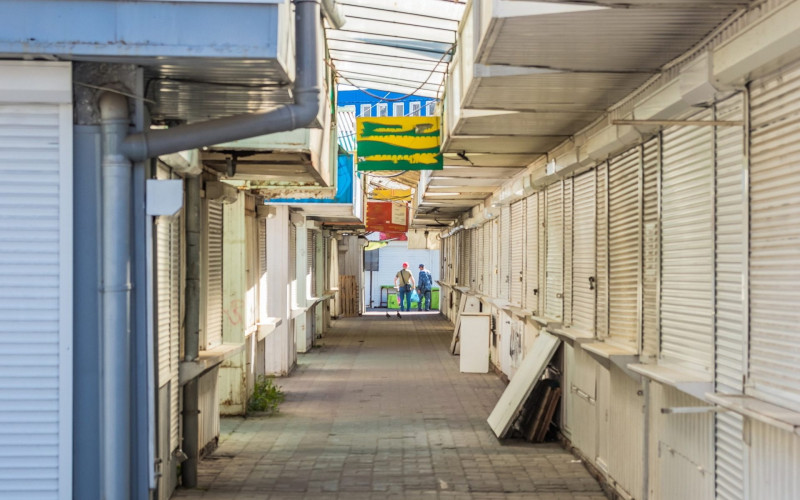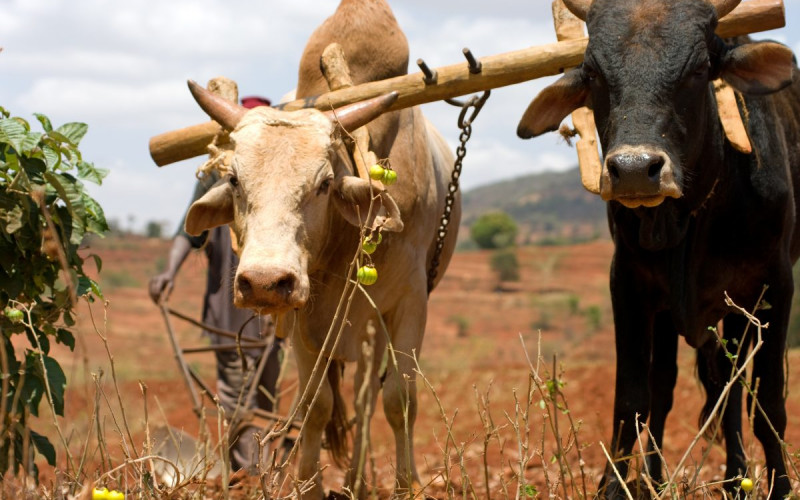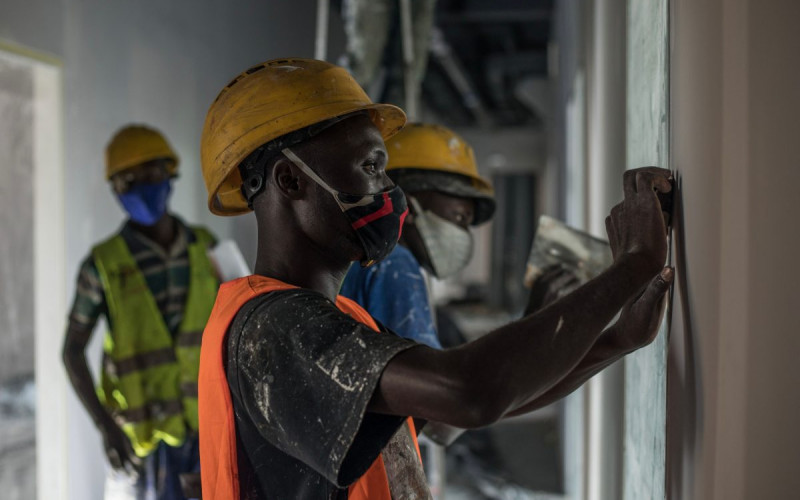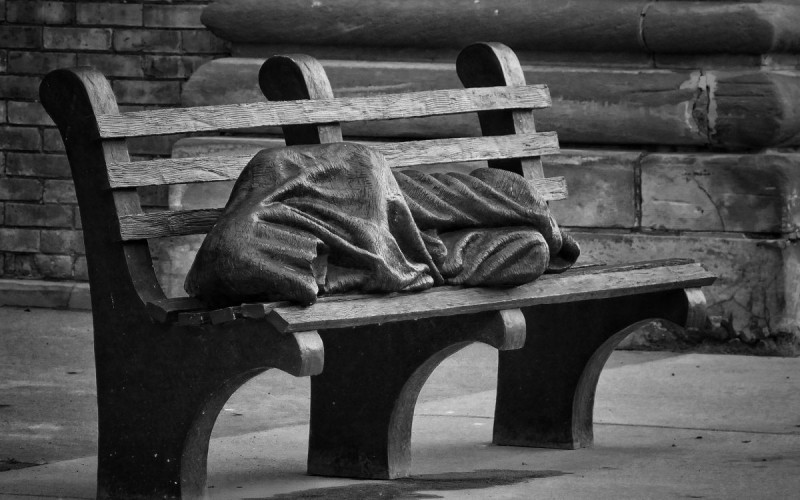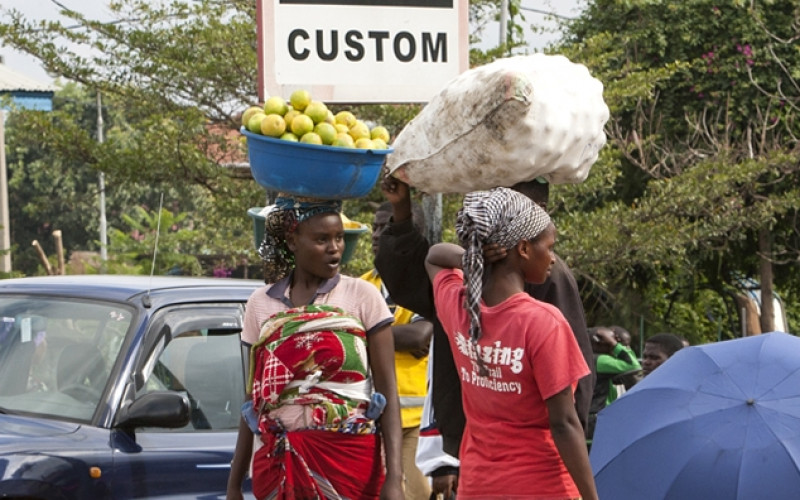But in the middle of Orange Farm, an informal settlement about an hour south of Johannesburg that is known for its violent crime and back-breaking poverty, the lights stayed on at Leshata Secondary long after other schools had gone on holiday.
Principal Moeketsi Molelekoa rummaged busily through the papers spread incongruously across his desk. In the library across the hall, a handful of teachers kept the photocopy machine whirring while a group of last-year students hunkered down to their biology lessons.
‘We plough deep whilst the sluggards are sleeping,’ said Molelekoa, emitting a laugh before bellowing another request to his secretary.
On the world’s poorest continent, official debates about education reform invariably pivot around money. But as the Association for the Development of Education in Africa has argued, chalk boards are only as useful as the people who write on them are qualified. Improving leadership, teacher training and parental involvement, in other words, is at least as important – if not more – than mobilising new resources. Few schools illustrate the point more poignantly than Leshata.
Against all historical and socio-economic odds, Leshata Secondary School consistently achieves matric pass rates that hover at or near 100%. The reason is the man in charge. Molelekoa drives his teachers, students, parents and the community as a whole to ensure that the children of Orange Farm receive an education to lift them out of a life of poverty.
The young principal’s hard-nosed determination has paid off. Not only has Leshata repeatedly achieved record-breaking exam pass rates over the past several years, its students have also scored consistently above the national average.
‘Oliver Tambo sent a message to teachers when he came back from exile: “Every child is my child,”‘ said Molelekoa, referring to the man who led the African National Congress during its decades in exile. ‘We teach these kids as if we’re teaching our own biological children.’
Humble Origins
The story of Leshata is inextricably linked to the story of Molelekoa himself. Raised in a shack in Sebokeng, a township not far from Orange Farm, in the early 1960s, Molelekoa and his four siblings were brought up by a single mother who cleaned the homes of wealthy white people to feed her family. Although illiterate, the woman recognised the importance of education and pushed her children to study.
Molelekoa did not disappoint his mother. After gaining three advanced degrees in education, working by day and studying by night, he taught biology and eventually became the deputy principal of Thankdukwazi High School in Sebokeng. In 1994, he was promoted to principal of Leshata, becoming, at 33 years of age, the youngest secondary school head in the country. He had every excuse to fail. At the time he took over, Leshata shared the buildings of three primary schools. Since the younger children used the premises in the mornings, Molelekoa’s secondary students had to wait until afternoon to attend classes. That gave the teenagers several unsupervised idle hours. Inevitably, many got into trouble, girls became pregnant and the drop-out rate was high.
‘In 1994, apartheid collapsed and a new democracy came up with the ANC coming in,’ said Molelekoa, a former liberation activist, explained. ‘But this is an informal settlement and crime is very rife.’
So Molelekoa, who is also Orange Farm’s spiritual leader and moral counselor, got tough. He recruited teachers who shared his philosophy, courting former colleagues and high-performing former students zealously.
‘We see our students as our clients, and it is our job to deliver a quality service,’ said Daniel Moepadira, a history teacher at Leshata and one of Molelekoa’s top former students in Sebokeng, who was also at school working during the July holiday.
The first big break came in 1996 when Impumelelo Education Trust donated new Reconstruction and Development Programme buildings to Leshata in which to house his school, giving them space, time and running water, ‘allowing us to live like human beings,’ Molelekoa said. Electricity even allowed him to keep the school open at night, so students who did not have power at home could do their homework.
Instilling a Work Ethic
Equipped with the new space, he ran the school with an iron fist, driving both intellectual knowledge and strict discipline into his students in a manner normally reserved for boot camp. Not only were pupils required to show up on time, wear school uniforms and attend special matric classes, but they even help clean the toilets.
Even though Leshata’s 20 classrooms are overcrowded with 58 students each, test scores continue to draw national attention. The introduction of special matric classes taught by the school’s highly qualified teaching staff bumped pass rates from 28% in 1996 to 100% in 1999. While Molelekoa strives to improve his students’ individual test scores, he boasts with fatherly pride of his matrics’ 60% average, allowing many to enter into university.
‘God never gave them to opportunity an choose the wealth of their families. God never asked them who their parents should be. But God gave them brains to change the situation they’re in,’ he said. Leshata’s neat cluster of small, brick buildings has been the focus of pointed attention since 1999. A collage of newspaper clippings, including one of former Education Minister Kader Asmal visiting the school in 2000, hangs on the walls. Private donors Telkom Foundation, Standard Bank, Africa Appointment and Sun International have responded to the school’s bare-boned success by donating a handful of computers for more than 1,000 pupils to share as well as the funds to build a small library. But the school’s success has attracted more than benefactors. As the student body grows, the classrooms are becoming tighter and tighter. And things like computers have attracted thieves: The school has had numerous break-ins.
A less tangible yet indispensable component of the Leshata success equation is Molelekoa’s unique commitment and determination to reach out to his students beyond the classroom. In addition to inviting spiritual leaders and psychologists to speak to students and teachers at the school, Molelekoa intervenes in the lives of problem students, who are often battling the extreme effects of poverty or broken homes. He tries to convince parents of the importance of an education, visiting families at home when he identifies a student who is not performing. If a parent fails to show to a school appointment, he withholds their child’s report cards until they do.
‘I have to push parents, too,’ he said. ‘More than 84% of male parents are unemployed and most are living below the breadline in abject poverty on a daily basis. That forces boys and girls to look for employment to supplement family income or to put some food in their stomachs before they go to bed at night. So I have had a challenge to change that. Only education, not exploitation, can change their situation.’
Perhaps Molelekoa’s most valuable attribute is his understanding of his students’ poverty on a personal level.
‘There are the funerals on Saturdays where everyone’s crying sympathies, but doing nothing for their lives,’ he said. ‘I push them. Sympathy, not empathy – that was my point of departure. If you see a destitute child, it’s easy to say, “Ag, shame. We sympathise with you.” I removed that. They should not accept sympathy from anyone. To pass matric well, to enrol at university, is the only cutting edge to combat the cycle of poverty they’re in.’
From Shack to Med School
His strategy has worked. One of his 1999 grads is now working as an accountant at one of the country’s most recognisable financial institutions. Another, who will be visiting this year’s matrics for an inspirational talk with the students, is on the verge of graduating from medical school. Their stories give hope to students like 18-year-old Bingma Vangile, who has dreams of going to university to become a psychologist.
‘We have to be on time and wear proper uniforms, but I’ve learned to be more hard-working,’ said Vangile, who wants to return to Orange Farm to help problem kids with similar backgrounds to her own. ‘If I’d been at another school, I wouldn’t be who I am today.’
Molelekoa wishes there were more principals and teachers who held his passion and commitment, yet deplored the ‘peanuts’ wages teachers receive in South Africa. Nonetheless, he doesn’t see that as an excuse for a lack of leadership in schools.
‘Children shouldn’t see their teachers down at the pub, drunk with their pants down,’ he concluded. ‘They have to be effective role models and leave behind footprints where children can follow them. I expect much from teachers. They are building the future South Africa.’



